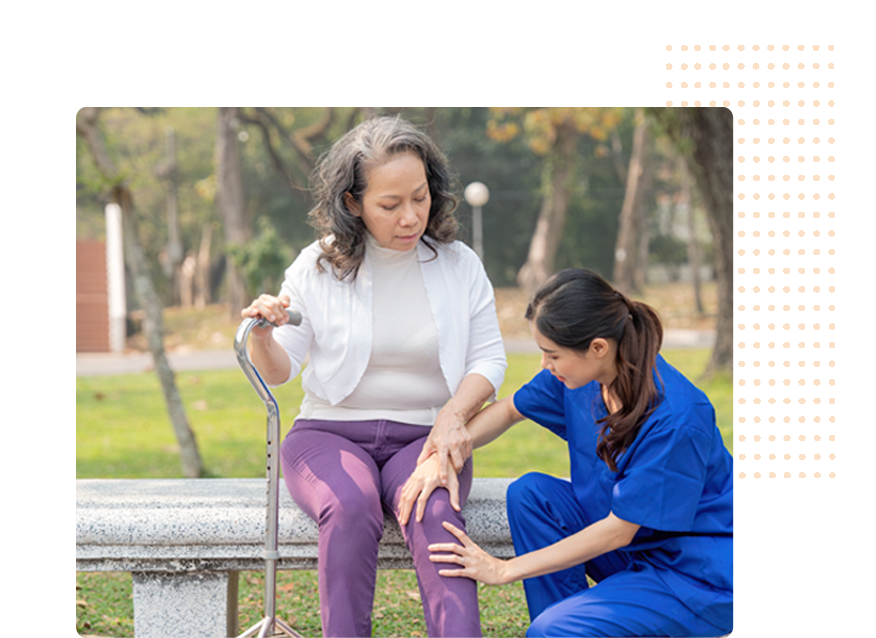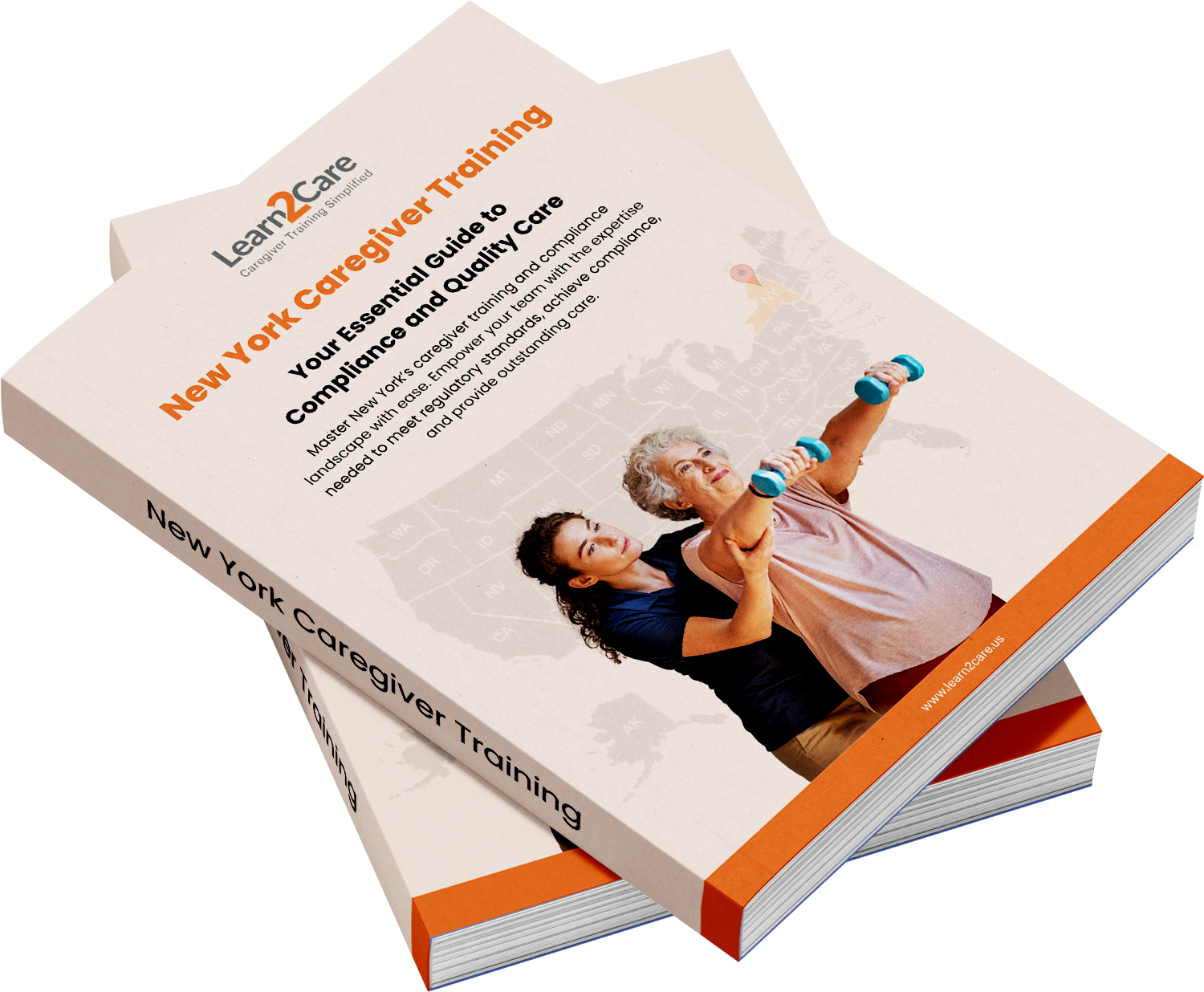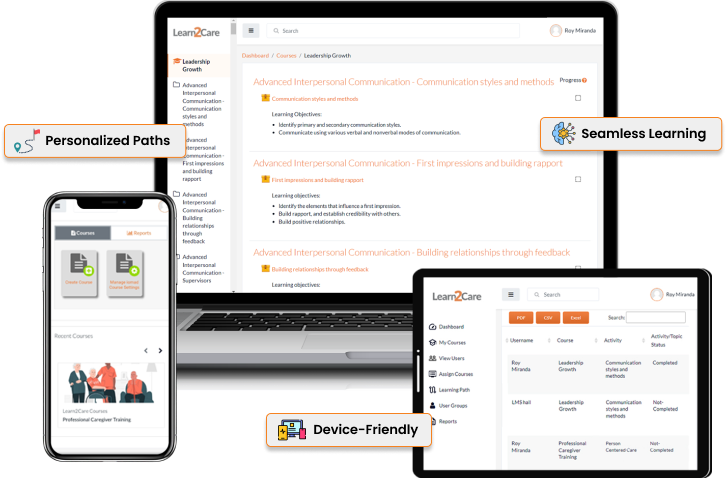
State Recommended Courses

Caregiver Training Certification
Online
Courses
Hours of Online
Content

Leadership
Courses
Initial Training Hours: 40
Annual Training Hours: 6
Comments: Training approval is required - coming soon to Learn2care
Initial Training Hours: 75
Annual Training Hours: 12
Comments: Training approval is required - coming soon to Learn2care
Disclaimer: We are committed to helping you stay informed and confident in your compliance efforts with the most accurate, up-to-date guidance we can provide. Our guides and resources are designed to support your training and compliance work, though state regulations may vary and change frequently. Please consult your state’s licensing or regulatory body for official guidance, publications, or requirements.
New York’s 65+ population is expected to surpass 4.6 million by 2030, making up over 23% of the total population. (New York State Office for the Aging)

Background Check
Fingerprinting, criminal history, and abuse registry checks are required.
Age Requirement
Caregivers must be at least 18 years old to meet regulation standards.
Health Requirements
Immunization records and routine health screenings are often needed.
Regulatory Framework
Regulations are overseen by the Department of Health.
Career and Salary
Caregivers in NYC earn ~$22.66/hour or ~$47,133 annually on average. (Indeed, 2025)
Don’t let confusion around caregiver training hold you back! Our engaging eBook is packed with essential insights on New York’s training requirements, ensuring you meet compliance effortlessly.


Equip caregivers with essential skills tailored to your agency's needs. Upskill administrators, managers, and office staff in leadership, communication, and team management.

Access 230+ online caregivers and leadership training courses, featuring over 185 hours of engaging content to effectively train your caregivers and home care agency staff.

Create personalized learning journeys by tailoring training to specific roles and areas of expertise such as Alzheimer's care, infection control, and restorative care.

Easily track and report on assignments, completion status, quiz scores, and each caregiver's overall progress with our streamlined Progress Monitoring system.

Equip caregivers with training that complies with US CMS HHA Conditions of Participation for home health aide services, ensuring high-quality care.

Upload your own training materials or allow your team to access built-in courses, streamlining essential training in one easily accessible location.


Learn2Care offers seamless, on-the-go learning with courses accessible anytime, even with limited internet. Compatible with PCs, tablets, and phones, it provides personalized and simple learning paths tailored for caregivers.
Get quick insights into caregiver certification, training hours, and how Learn2Care simplifies the process for you.
New York requires PCAs to complete at least 40 hours of classroom-based training, following state-approved curriculum and instruction standards.
HHAs must complete a minimum of 75 hours of training, including at least 16 hours of supervised practical training, to meet state and federal requirements.
The New York State Department of Health oversees all caregiver training programs, curriculum standards, and agency compliance.
Initial training must be conducted in person, but online learning is often permitted for annual training, refreshers, or specialized add-on modules.
Caregivers typically need to show proof of immunizations, undergo a recent physical exam, and meet infection control and safety standards set by the state.
Caregivers must complete fingerprinting, a criminal history check, and be screened through the state’s abuse registry before employment.
Yes, caregivers must be at least 18 years old to qualify for PCA or HHA roles under state regulations.
As of 2025, caregivers in New York City earn an average of $22.66 per hour, or roughly $47,133 per year, depending on their role and experience level.
Yes, Learn2Care’s platform is ideal for delivering annual training and skill refreshers, especially for topics like Alzheimer’s care, safety, and communication.
Here’s how strategic training benefits both agencies and caregivers:
Investing in caregiver development showcases your agency’s commitment to quality, compassion, and long-term success for your team and the people you serve.